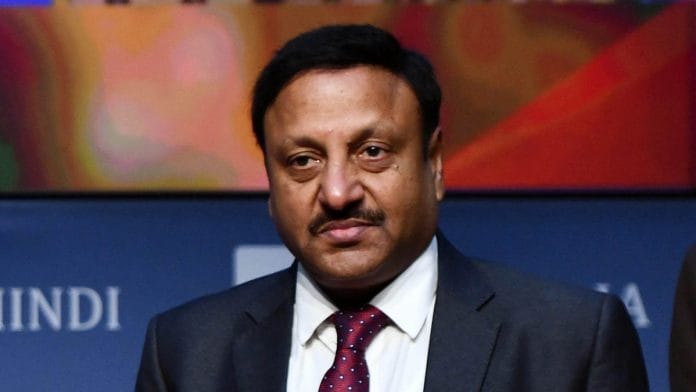New Delhi: Election Commissioner Rajiv Kumar had sought to file a separate affidavit with the Madras High Court on the panel’s role in conducting elections during the second wave of the Covid-19 pandemic. But the move was denied since there is no precedence of two separate affidavits being filed by the Election Commission of India (ECI) in the same case, a senior ECI official told ThePrint.
“There is no precedence of more than one affidavit being filed in the court by the ECI. It is a constitutional body, and cannot file multiple affidavits in the same case,” the ECI official said on condition of anonymity.
“The matter was consulted with our senior counsels, and then a decision was taken that his (Kumar’s) request cannot be agreed upon,” the official added.
The official also pointed out that the affidavit which was filed in the Madras HC was mutually agreed upon by both the Chief Election Commissioner Sushil Chandra, and EC Kumar even as the latter was keen on filing a separate affidavit.
ThePrint reached Kumar for a comment via WhatsApp texts and calls, but there was no response until the publishing of this report.
Also read: Committed to free media, says EC, calls it a natural ally days after seeking gag order
The row over HC censure
The current split in the ECI over the Madras High Court’s censure came to light after The Indian Express reported that the panel’s plea in the HC for a gag on the media from reporting oral observations of judges, and its subsequent petition in the apex court against the HC’s “murder-charges” remark were not unanimously approved by the commission.
However, the ECI issued a statement Thursday in response: “The Election Commission was unanimous that before Hon’ble Supreme Court there should not be any prayer for restriction on media reporting.”
While the HC turned down the ECI’s plea for a gag on media, the Supreme Court too refused to gag the media from reporting court proceedings, including oral observations made by judges. The top court said that the proceedings augment public scrutiny and are crucial to maintain institutional transparency and accountability.
However, in what the ECI sees as a vindication of its stand, the SC also noted that the remarks made by the HC were harsh and the metaphor was inappropriate.
Also read: Up to 530% spike in poll states, 152% after Holi — the big culprits in India’s new Covid wave
Past cases of divide
This is not the first time when a split between commissioners in the ECI has come to the fore.
In 2019, then EC Lavasa had dissented against the majority opinion of then CEC Sunil Arora and Chandra regarding giving clean chits to Prime Minister Narendra Modi and then BJP president Amit Shah for allegedly violating the Model Code of Conduct during the general elections.
There is a provision in law to tackle a disagreement in case of majority opinion of the ECI.
According to Section 10 of The Election Commission (Conditions of Service of Election Commissioners and Transaction of Business) Act, 1991, all business of the EC “shall, as far as possible, be transacted unanimously”. However, in case the CEC and the Election Commissioners differ in opinion, “such matter shall be decided according to the opinion of the majority”.
It is not clear what can be done in case there are only two commissioners, and they have a difference of opinion like in the case of Kumar and Chandra.
Who is Kumar?
Rajiv Kumar was appointed as an Election Commissioner in August last year, days after Ashok Lavasa, who is known to have had a tense relationship with the Narendra Modi government, resigned from the post.
A 1984-batch IAS officer of the Jharkhand cadre, Kumar retired as finance secretary in February last year.
He was then picked by the government to head the Public Enterprises Selection Board, the body that clears names of government officials for various top posts in public sector undertakings. Kumar was then named EC.
Also read: Did Ashok Lavasa case change it all for EC? Why India needs a TN Seshan: Ex-IAS officer






